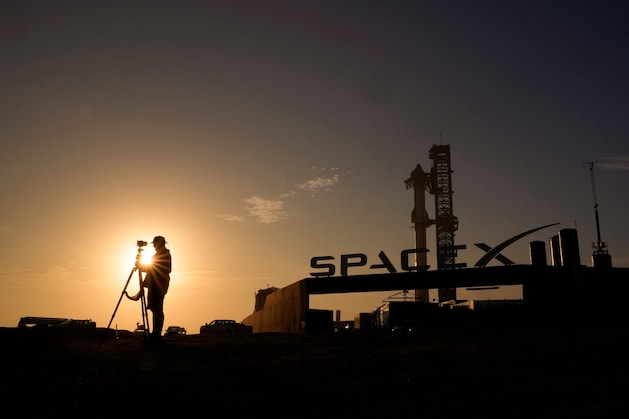The world is entering the so-called “third space age,” and this time the focus is not on governments, but on private companies. If the 20th century space race was determined by political power, now the financial aspect is in the foreground.
It’s a fascinating time for space enthusiasts who want to see people back on the moon or even Mars – regardless of whether presidents or billionaires are footing the bill. Space travel is experiencing a renaissance, similar to the times of the Apollo program, but with the difference that private companies are now taking the lead instead of states.
A series of recent milestones, including the increasingly successful test flights of the largest rocket yet and the landing of the first privately built probe on the lunar surface, have reinforced the idea that humanity has entered a “third space age.”
“To say we are in a new era is absolutely fair,” Greg Sadlier, a space economist and co-founder of the consulting firm know.space, told Britain’s The Guardian. “We are in the era of competition, or the commercial era. Barriers to entry are lower, costs have fallen, which has opened doors to a much larger number of nations,” he added. “It’s the democratization of space, if you will.”
Today, more than 70 countries have space programs, but for a long time the United States and the Soviet Union were the only major powers.
Humanity’s first space traveler, Soviet cosmonaut Yuri Gagarin, orbited the Earth in April 1961. A year later, US President John F. Kennedy, in his famous “We Choose to Go to the Moon” speech, promised to put an American on the moon before the end of the decade – against an “enemy banner of conquest.”
“Of course it all costs us a lot of money,” Kennedy acknowledged, but the Cold War motivated him to spend the equivalent of hundreds of billions of dollars of taxpayer money to win the space race. The end of the Cold War in 1989 brought a brief moment of global optimism and led to the second, more cooperative space age. The International Space Station was assembled over 13 years, and since 2000, people of different nationalities have been constantly living in space and working together on experiments in the orbiting laboratory.
However, this second era saw a decline in efforts to take humanity further into space. This is symbolized by NASA’s space shuttle program, which never took humans beyond Earth orbit and was ultimately canceled in 2011, in large part because the US government did not want to continue bearing the high costs. Washington then had to rely on Moscow’s Soyuz rockets to launch its astronauts into space.
However, these high costs have now been reduced by private companies, often acting as government contractors. In recent years, some of these companies have begun to make profits, although not for high-profile reasons such as space tourism, but mainly through the broadcasting of communications satellites, particularly broadband Internet. Many estimates suggest that the global space industry could generate more than $1 trillion within the next two decades.
In an article published last year by the influential strategy and management consultancy McKinsey
Elon Musk’s SpaceX has been at the forefront of this movement, launching its reusable rockets 96 times last year. The company’s largest system, called Starship and still in development, is marketed as an interplanetary explorer. Musk says he built the 400-foot-tall rocket so humans could colonize Mars. NASA previously commissioned SpaceX to put astronauts, including the first woman, on the moon this decade.
As a business venture, it could make money beforehand by serving as a sort of flying cargo ship. Starship has a payload of up to 150 metric tons, five times what the Space Shuttle could carry. Global politics continues to play a role in space, but with more players. China has overtaken Russia as the US’s main rival, with its own space station in operation, probes on the moon and a rover on Mars. Beijing is scheduled to send a robotic spacecraft to the far side of the moon on Friday.
In particular, the Moon’s south pole is considered a “golden belt” for lunar exploration because it contains water ice that could be used as drinking water and even converted into rocket fuel. Scientists are concerned about both the politicization and commercialization of space, especially amid talk of future “mining” operations on the pristine, pristine moon. However, proponents of space exploration point to previous progress. The CT scan, a crucial medical device that can identify tumors, has its origins in research before the Apollo mission; Astronauts on the space station have used the unique microgravity to better understand diseases such as Alzheimer’s.
For economists like Sadlier, the third space age creates an unprecedented situation – one that could upend the foundations of the market system. “In economics we assume that resources are limited; Land is limited; natural resources are limited,” he told the Guardian. “With space it allows us to change that.”
A 19-year-old was brutally killed on the street in the Spandau district of Berlin. As FOCUS learned online from police circles, the victim is a refugee. The background is said to be an act of revenge for a murder that was committed in Turkey.
A student applied for a part-time job at the university. The job interview became a humiliation for her.









